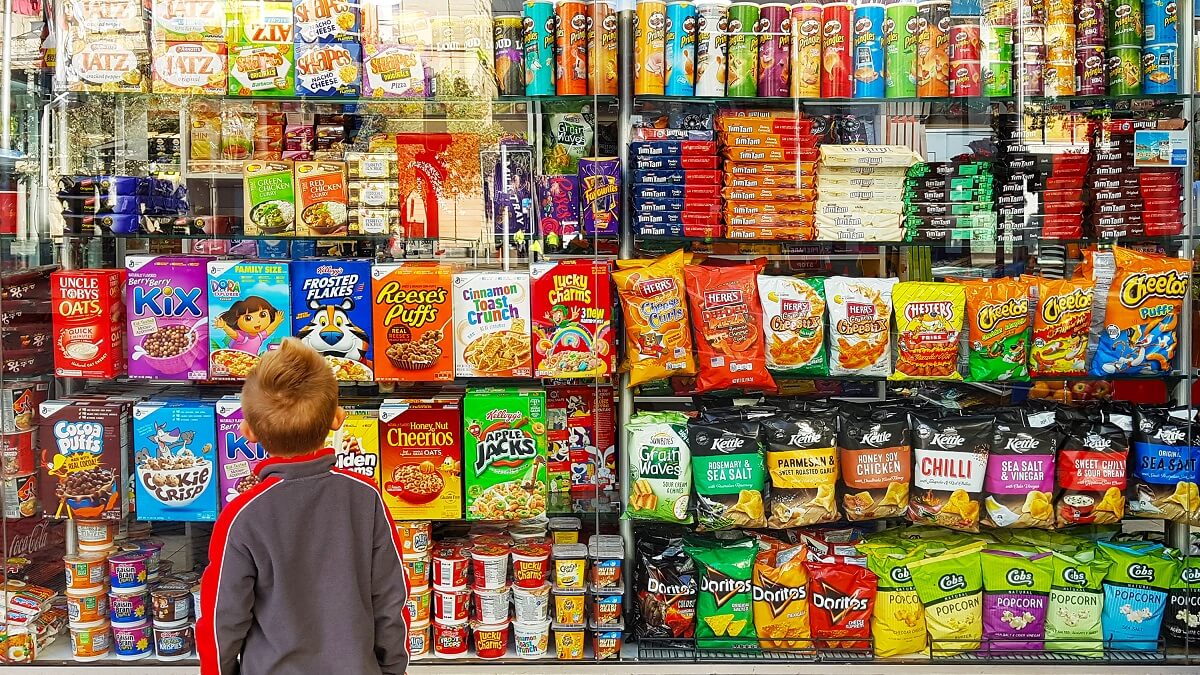You’ve probably noticed the products you buy at the supermarket are getting smaller – but their price isn’t. The phenomenon is known as ‘shrinkflation’ and it seems to be getting worse, according to research.
More and more supermarket products are suffering from the ‘shrinkflation’ curse, an investigation by consumer group CHOICE reveals.
Their research shows breakfast cereals, Easter favourites, chips and cleaning products are all among the latest grocery goods to be hit.
What exactly is ‘shrinkflation’?
The term ‘shrinkflation’ refers to a manufacturer reducing the size or volume of an item it produces without dropping the price in kind. In fact, in a lot of shrinkflation situations, the price goes up.
Put simply, shrinkflation is when you are suddenly asked to pay more for less of a product.
Businesses defend the practice, saying shrinkflation results from rising manufacturing costs as well as rising profit margins from the supermarkets.
“Shrinkflation is happening more and more often, and consumers are frustrated at its prevalence in supermarkets,” says CHOICE journalist Liam Kennedy.
“We’ve heard from many people who say their favourite products have reduced in size, and in some cases, become more expensive.”
What did CHOICE find?
Breakfast cereals
CHOICE found store-brand cereals sold by both major supermarkets have suffered size reductions, with prices remaining the same.
For example, Coles’ Mighty Grain and Woolworths’ Max Charge cereals have gone from 560g to 495g, but remained at $4.50.
“Coles’ Mighty Grain was being sold in 560g packets in October 2022, but now can only be found in 495g packages for the same price of $4.50,” says Mr Kennedy.
“Woolworths has also downsized one of its cereal products – Max Charge cereal was sold in 560g packs until September last year, when the retailer began offering it in 495g packs instead.”
Hot cross buns
With Easter just around the corner, customers are rushing to stock up on Easter favourites – like hot cross buns. But CHOICE found one brand has been quietly reducing their bun sizes.
“Community Co’s traditional and chocolate varieties have shrunk by 30g since last year, going from 480g to 450g,” Mr Kennedy says.
“However, they’ve also been hit with a price increase, bumping them from $4.00 to $4.50.”
Community Co hot cross buns are stocked at IGA and FoodWorks supermarkets.
Corn chips
The investigation found Woolies’ home brand original salted corn chips were $2.30 for 200g when first recorded in October 2023, but now the pack size has gone down to 175g.
Biscuits
CHOICE found discrepancies with McVities’ ‘Go Ahead’ range of fruit-flavoured biscuits, which are on sale at both major supermarkets.
“McVities’ Go Ahead range of ‘forest fruit’ flavoured biscuits are also decreasing in size with packets going from 218g for $4.40 in June 2022 to 174g now, with no reduction in price,” says Mr Kennedy.
Cleaning products
It’s not just food that has had the shrinkflation treatment. The investigation found that back in May 2022, you could get a 700ml Jif’s Power Shine & Bathroom cleaner for $2.50.
“Now, you’ll only get 500ml for $4.00, meaning the cost of each 100ml has increased by over 122 per cent,” Mr Kennedy says.
Dodgy – but not illegal
While shrinkflation is undoubtedly annoying for consumers, the brands and retailers technically aren’t doing anything wrong – for now. Mr Kennedy says CHOICE would like to see businesses be more transparent with this information and make sure customers are better informed.
“Unfortunately, alerting customers to shrinkflation is not a mandatory requirement, but CHOICEwould like to see this change,” he says.
“Supermarkets should be required to be upfront with their customers about products that have decreased in size but not in price, so consumers can make informed decisions when shopping. During a cost-of-living crisis, this is more important than ever.”
Have you noticed any other products getting smaller? Did their price stay the same? Let us know in the comments section below.
Also read: Greens target supermarkets with proposal to break up companies


I saw a sale sticker on the shelf at Coles. When I looked under it, the original price was the same .
My biggest gripe is as I am gluten intolerant, I need to buy GF products. Packages are usually a lot smaller than equivalent products & much more expensive.
Although I realise the through put is smaller, nevertheless it is very hard on those like me & coeliacs . It is discrimination really.